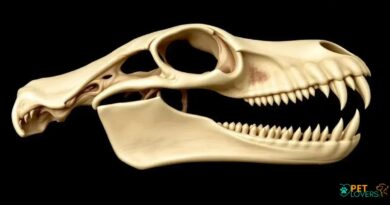What is: Zinc supplementation for dogs
What is Zinc Supplementation for Dogs?
Zinc supplementation for dogs refers to the process of providing additional zinc to a dog’s diet to ensure they receive adequate levels of this essential mineral. Zinc plays a crucial role in numerous bodily functions, including immune system support, skin health, and the proper functioning of enzymes. Without sufficient zinc, dogs may experience various health issues, making supplementation a vital consideration for pet owners.
The Importance of Zinc in a Dog’s Diet
Zinc is an essential trace mineral that is necessary for the proper functioning of many biological processes in dogs. It aids in the synthesis of proteins, supports cellular metabolism, and contributes to the healing of wounds. Additionally, zinc is vital for maintaining healthy skin and coat, as it helps to regulate oil production and prevent skin irritations. A deficiency in zinc can lead to symptoms such as hair loss, skin lesions, and a weakened immune response.
Signs of Zinc Deficiency in Dogs
Recognizing the signs of zinc deficiency in dogs is crucial for timely intervention. Common symptoms include flaky skin, excessive scratching, and hair loss, particularly around the eyes and mouth. Dogs may also exhibit behavioral changes, such as lethargy or decreased appetite. In severe cases, zinc deficiency can lead to more serious health issues, including infections and delayed wound healing. If you notice any of these signs, it’s essential to consult a veterinarian for proper diagnosis and treatment.
How to Supplement Zinc in Your Dog’s Diet
There are several ways to supplement zinc in your dog’s diet. One of the most common methods is through commercial dog foods that are specifically formulated to include adequate levels of zinc. Additionally, zinc supplements are available in various forms, including tablets, chews, and powders. It’s important to consult with a veterinarian before starting any supplementation to determine the appropriate dosage and form for your dog’s specific needs.
Types of Zinc Supplements for Dogs
Zinc supplements for dogs come in several forms, including zinc sulfate, zinc oxide, and zinc methionine. Each type has its own absorption rate and bioavailability, which can affect how well your dog utilizes the zinc. Zinc sulfate is commonly used due to its high absorption rate, while zinc oxide is less bioavailable and may not be as effective. Zinc methionine, on the other hand, is an organic form that is often better absorbed and utilized by the body.
Potential Risks of Zinc Supplementation
While zinc is essential for your dog’s health, excessive supplementation can lead to toxicity. Symptoms of zinc toxicity may include vomiting, diarrhea, lethargy, and abdominal pain. In severe cases, it can cause more serious health issues, such as kidney damage or hemolytic anemia. It’s crucial to follow the recommended dosages and consult with a veterinarian to avoid potential risks associated with zinc supplementation.
Natural Sources of Zinc for Dogs
In addition to supplementation, there are natural food sources rich in zinc that can be included in your dog’s diet. High-quality meats, such as beef, lamb, and chicken, are excellent sources of zinc. Fish, eggs, and certain vegetables like spinach and pumpkin also contain zinc. Incorporating these foods into your dog’s meals can help ensure they receive adequate levels of this essential mineral without the need for additional supplements.
Consulting with a Veterinarian
Before making any changes to your dog’s diet or introducing zinc supplements, it’s essential to consult with a veterinarian. They can assess your dog’s specific needs, recommend appropriate supplements, and monitor their health for any potential issues related to zinc levels. Regular check-ups and open communication with your vet can help ensure your dog remains healthy and happy.
Conclusion
Zinc supplementation for dogs is an important aspect of maintaining their overall health and well-being. By understanding the role of zinc in a dog’s diet, recognizing the signs of deficiency, and consulting with a veterinarian, pet owners can make informed decisions to support their furry companions. Ensuring adequate zinc intake through diet or supplementation can lead to healthier skin, a stronger immune system, and an overall improved quality of life for dogs.


